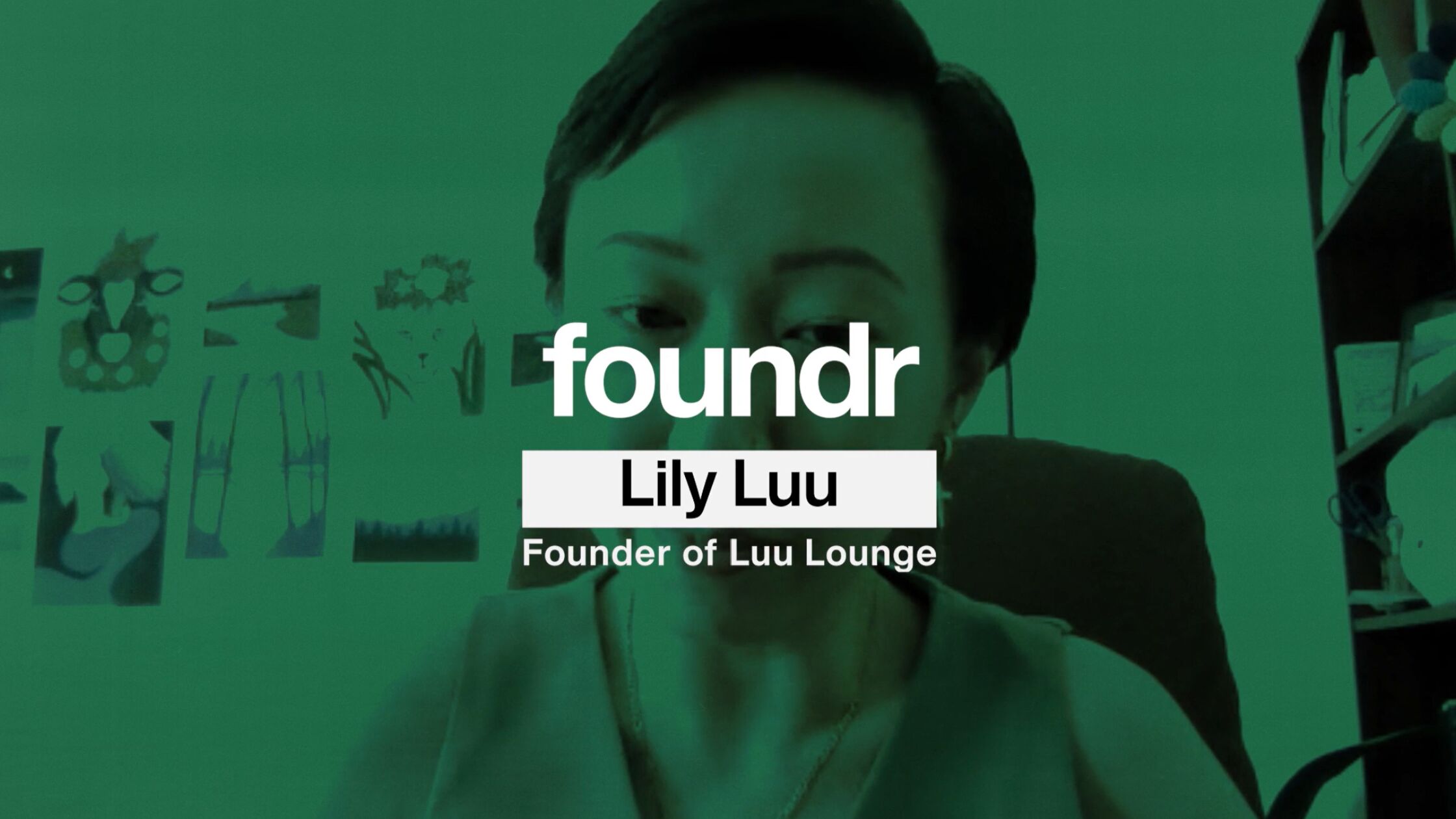There’s more than one path to starting a successful consulting business.
There are people like my dad, who launched his consultancy by walking into his boss’s office and saying, “I’m starting a consulting business. I’d like to make you my first client.”
Just like that, he went from being the employee of a large hospital to being an entrepreneur. He even kept his same office. The hospital just changed the plaque on his door. They took down the old version, which included his name and position, and replaced it with a new plaque that read, “Headquarters of Audie Lewis Consulting.”
My dad continued performing the tasks he loved and negotiated his way out of doing the work he found tedious and time consuming. And instead of consulting for one hospital, he gained the bandwidth to help many.
EXCLUSIVE FREE TRAINING: Successful Founders Teach You How to Start and Grow an Online Business
Then there are people like veteran consultant and author Alan Weiss, who launched his consulting business after being fired from his corporate job in the mid-80s.
Weiss chose the fake-it-til-you-make-it approach. He went into debt to look the part of a high-end consultant. He bought a brand new suit, flew first class, and arrived to client meetings in a limo—the whole thing.
“If I’m going to show up at the office of a powerful buyer, I’m not showing up sweaty, and wrinkled, and lost. I’m showing up as a peer of that buyer.”
It worked, as Weiss quickly became an upmarket consultant earning seven figures per year.
And some consultants begin like Sabri Suby, who launched his business by cold calling prospective clients from his bedroom. Within four years, Suby took his consulting business from $0 to $10 million. His company, King Kong, is now one of the fastest-growing marketing agencies in Australia.
Such stories are fun to read. But they don’t get down to the foundation of what it really means to be a consultant. Not to mention, they don’t convey why people hire consultants in the first place. These are questions that haunt many aspiring consultants, or 9-to-5 workers just kicking around the idea of breaking free and going solo.
To find real, honest answers, Foundr sat down with Sabri Suby himself to ask that one critical question:
What does a consultant do?
Here’s what he told us. Stick around after the video, and we’ll dig a bit deeper into his answers.
Seeing Problems as Opportunities
Sabri Suby points out that consultants, above all else, are problem solvers. There’s an inherent curiosity among consultants. They are opportunists, solution-oriented tinkerers.
When some people see a problem, they roll their eyes and wonder why that system wasn’t better designed. Others will view that exact same problem as an opportunity to redesign and create something that works more effectively.
When something goes wrong or functions poorly, it’s the very nature of a consultant to see that hiccup as an opportunity to create value.
That means, if you want to start consulting, your first step is to determine just what problems you’d like to solve. As Suby points out, a consultant is the bridge between a person and the outcome that person would like to achieve. Consultants can assist with anything from a person’s weight loss to an improved hiring process in a high-turnover business.
The ability to continuously find solutions for other people, and help them achieve those solutions for themselves, requires a combination of curiosity and creativity. You must possess the curiosity to notice where problems exist, and the creativity to find a worthwhile solution.
Consultants as Industry Problem Solvers
Distilled to their simplest form, we know that a consultant is someone who gets paid to solve problems. But what sort of problems do consultants solve?
In short, they solve problems that require expertise.
Consulting services are as unique as the consultants themselves, because each person uses their own diverse knowledge, experience, and creativity differently.
Finding success as a consultant means first determining your strengths. What skills or knowledge can you leverage to help other people get out of a bind? Typically, a consultant hones in on a niche problem. They avoid trying to be all things to all people. These particular problems become the consultant’s expertise.
Why Expertise Matters
My own business, Lewis Commercial Writing, really took off when my partner and I decided to niche down. Instead of positioning ourselves as generalists, we specialized in B2B SaaS copywriting.
Yes, it was scary to turn away business those first couple months. But after overhauling our branding and focusing our marketing, within months we started generating exponentially more work. We even began commanding higher fees, because we were solving more nuanced problems for more specific clients.
Determining your consulting niche gives you three primary advantages over other people with your same skill set:
1. Higher Quality Solutions
As a specialist, the consultant can devote more of their energy and attention to a single problem.
Having laserlike focus equips the consultant to gain a greater understanding of the problem, and typically allows them to have greater efficiency when solving it. This means they can solve problems faster and better than most other people.
2. Better Pay
Many business owners pay higher fees for this expertise and efficiency—particularly when you can prove it will actually save them money or energy.
Having a niche increases the consultant’s value to a company. When someone has a specific problem, they want an expert who understands the minutiae. That’s why most people will pay more for a specialist than a generalist.
3. Faster Climb to the Top
Many industries are relatively small as you immerse yourself within them. It’s not uncommon for business owners—even competitors—to talk amongst themselves to share knowledge or ideas. If you’re the go-to expert for solving a highly specific problem in one industry, then your name may quickly get passed around from business to business.
Word of mouth marketing has higher rates per conversion than just about any other form of distribution. Think about it: most of us take a friend’s recommendation more seriously than an advertisement we see on television or Facebook.
How Do Consultants Solve Problems?
Sabri Suby points out three common ways that consultants solve business problems:
Services
A few weeks ago, my partner Sarabeth and I set up a two-hour workshop with one of our clients to help them distill their offerings down to their simplest, clearest form. Since our client offers a fairly technical product, a lack of clarity in their messaging was preventing them from selling their software and services.
As writers, we knew that we could add a lot of value by facilitating a conversation that got their team to identify the foundational service they were trying to sell. The only way to pique the interests of their ideal clients was to help them articulate their offerings at a foundational, jargon-free level.
Our services are communication based. But services range across every industry and specialty. Offer your strengths and skills as a service to others.
Solutions
In some cases, a consultant may present a turnkey solution to a given problem. Perhaps they’ve built a proprietary methodology that delivers the exact solution to the problem at hand. Others may solve for a lack of data or information by delivering a report or analysis of a given business problem.
My father, for example, completed every consultation with a long, written report in the form of a small book. This served as a systems or financial audit that the client could then use to acquire funding, approve a new business direction, or move forward on a project.
Products
Many consultants offer products to their clients. SaaS products are particularly popular today. Many large corporations rely on smaller software companies to fill various productivity or tool gaps in their organization. Instead of creating their own CRM, building a network monitoring tool, or keeping track of finances in Excel, a business may rely on outsourced services.
Many of these SaaS companies function as consultants, teaching companies how to use their software and even offering custom features or design that fit the needs of that specific client.
Think About Efficiency in Your Pricing Model
Sabri notes that, on a superficial level, consultants sell their time for a fee. “But that’s not what you’re really doing. Your role is to solve problems that your market is experiencing.”
While you may think about your pricing in a per-hour structure, that won’t matter to most clients. To demonstrate the point, imagine you’re the person in need of a specialty service. We’ll borrow Sabri’s example of needing tooth surgery.
When you need a dentist to perform surgery, all you care about is the end solution—a healthier (perhaps less painful) tooth. If one dentist says the surgery will take them eight hours to complete and another tells you they can perform the same surgery in a half hour, most of us will go with the second dentist. We all value efficiency.
As a consultant, your differentiation can be summed up in one question: In what ways can you solve this problem better than someone else?
Once you determine that solution, you’ll never have to think about hourly pricing again. As Sabri points out, racking up hours is not the key to financial success as a consultant. When a specialist can offer a high quality solution in less time than others, many people will pay them more money for their efficiency.
Hours Are Irrelevant
A famous (and free) short ebook, Breaking the Time Barrier, provides ample advice about understanding this value-based pricing model. The key concept within the book revolves around what a client is actually paying for when they hire your professional services.
Do you position your services as a bundle of hours or as a solution to your client’s problem?
Breaking the Time Barrier tells the story of Steve, a web designer struggling to make a sustainable living as a freelancer. Steve meets Karen, a highly successful web designer who agrees to give Steve advice that could transform his pricing structure, and ultimately, his business. Karen says, “ don’t hire me to design a website for the sake of designing a website. They hire me to design a website that’s going to help them grow their business.”
Karen breaks down the value she adds to businesses. She explains why she is worth more to them than simply the time it takes for her to create a website. Her value is a culmination of years of study, focused expertise, and lots of experience delivering high-quality solutions for her clients. Therefore: “The value of what I do is based on the impact I can have on my client’s business.”
Consultants using a value-added pricing model understand that they are worth more than the effort or time it takes for them to solve a problem. Their value also includes their ideas, their practice, and the personal investments they’ve made toward self-improvement and education.
That’s why value-added pricing structures tend to use fixed fees instead of per-hour, adjustable rates. Hours become irrelevant if your only focus is solving your client’s problem.
Put another way: You are paying to have your tooth repaired, not to make sure the dentist spends a certain number of hours performing the surgery.
A Consultant Solves Problems. Get Your Name—and Solutions—Out There
As more people benefit from your expertise, something begins to grow and take on a life of its own. Your work becomes more than the culmination of your experience.
When you solve a big problem for someone, they talk about it. When you solve that same problem for 10, 25, or eventually 100 people, you begin to form a reputation. That reputation is your consulting business’s brand.
Eventually, your ability to solve problems will proceed you. Future clients will begin to recognize you as the expert in your field. Businesses may even go out of their way to make sure you’re the person they hire to solve their problem.
That’s when your consulting rates go through the roof and your business truly starts to skyrocket.
But it all starts with solving that first problem.
EXCLUSIVE FREE TRAINING: Successful Founders Teach You How to Start and Grow an Online Business
















